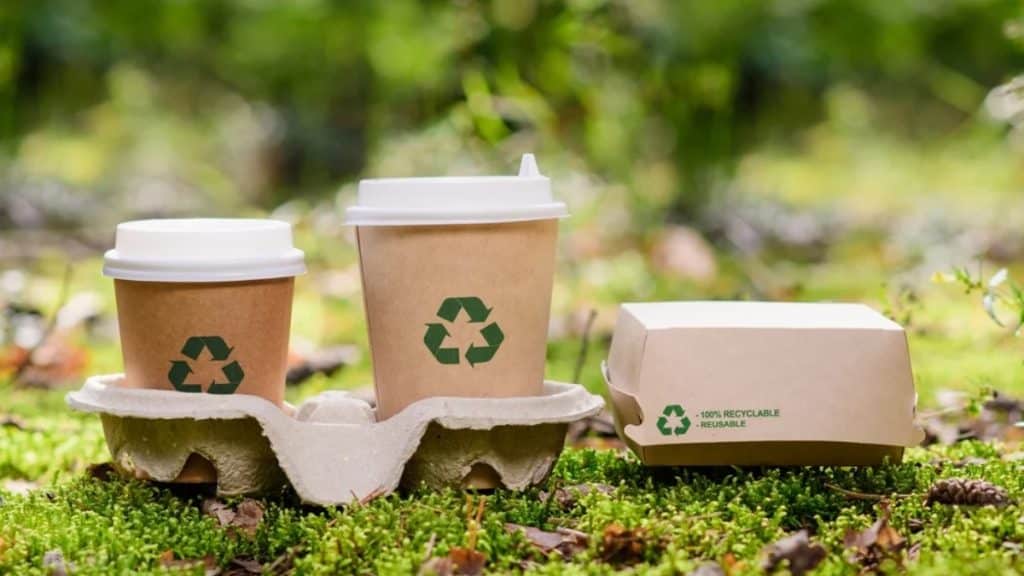Plastic trash has become an enormous threat to our environment, polluting seas and harming animals while releasing harmful substances into nature. A leading contributor is quality food packaging: for years plastic food wrapping such as cling film and takeout cases have been an integral part of food storage, resulting in waste problems which need urgent solutions. Now there are more environmentally-friendly packaging alternatives which are changing how we package, store and consume our meals.
Understanding Plastic in Food Packaging
Plastic food packages have become an increasingly popular choice as a strong, affordable, and lightweight packaging material. Unfortunately, however, their convenience comes at a high environmental cost: plastic can take hundreds of years to decompose into microplastics that pollute land, water, and our food supplies – and yet many plastic packages are used only once and then discarded within minutes!
Eco-Friendly Food Packaging
Eco-friendly food packaging has many advantages for both the planet and businesses alike. It lowers landfill trash, and ocean pollution and lessens food’s impact on earth; plus some options even reduce harmful chemicals entering food products to support healthier lifestyles. In business terms, meeting customer requests to use less plastic made from oil products will increase sales.
Popular alternatives to plastic food packaging.
Nowadays there are more eco-friendly food packages than ever available on the market, ranging from biodegradable material that breaks down naturally to compostable packing that breaks down even further, providing nutrients back to nature while recycling glass, metal, and paper all help the environment while keeping food safe for consumption.
New Materials for Eco-Friendly Packaging.
Sustainability-minded packing materials designers have come up with groundbreaking innovations, like PLA (Plant-Based Plastics). PLA is made from cornstarch and degrades faster than regular gasoline-derived plastics.
Packaging made of mushrooms:
Crafted from mycelium, mushroom packaging is strong yet lightweight and biodegrades entirely over time.
Wrapping items in seaweed films.
Derived from ocean plants, seaweed films are safe to eat while leaving no waste behind. Edible packaging such as rice-based wraps and starch coats is revolutionizing how we think about sustainability in the food business.
Prominent Businesses Adopt Eco-Friendly Packaging
More and more progressive businesses are adopting environmentally sustainable packaging options to achieve their environmental goals, with leading brands such as Patagonia Provisions,and Lush and Loop being pioneers of zero-waste packing techniques. Consumers now consider corporate responsibility when making choices; encouraging more eco-friendly practices from businesses they patronize.
Sustainable Packaging Can Be Complicated
Sustainable packing offers many advantages, but also has some drawbacks. Higher production costs may make businesses reluctant, and some customers may have concerns over product longevity or food safety issues. As demand rises and technology improves, prices have decreased making sustainable choices easier to access; education and exposure play an essential part in changing misperceptions about sustainable options.
Government Rules and Worldwide Regulations
Countries around the world are taking steps to reduce plastic trash. The European Union (EU), Canada and several US states have all enacted bans or reduced plastic use to help reduce plastic trash, with laws encouraging companies to find eco-friendly options while adhering to environmental-focused laws.
DIY Packaging Ideas
consumers can support green practices through do-it-yourself packing solutions. Beeswax wraps offer an environmental alternative to plastic wrap; fabric pouches provide dry food storage; glass jars, tin cans, and paper bags provide eco-friendly storage solutions as well.
How Consumers Can Decrease Plastic Waste
Each time we make purchases, our choices signal what kind of world we envision for ourselves and future generations. By supporting eco-friendly brands and encouraging plastic-free options at reliable stores, small acts add up and can have an enormous effect that reshapes markets and economies alike.
Sustainable Food Packaging
Sustainability is no fad; it is the future. Reusable plastics, elegant packaging that holds food fresh longer, and films made from algae are helping create a world without plastic waste. With continued investment and customer interest in eco-friendly packaging solutions, eco-friendly food packaging will become mainstream rather than an unusual sight.
